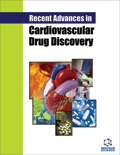Abstract
Docosahexaenoic (DHA) and eicosapentaenoic (EPA) acid of the ω-3 family of polyunsaturated fatty acids (PUFA) are abundant in fatty fish and other marine sources. Their consistent consumption has been related to an improved cardiovascular risk especially in high risk patients and populations. In this review, we presented major findings about potential mechanisms of action and clinical evidence regarding ω-3 PUFA effect on the control and prevention of cardiovascular disease. This review is an update of our previous review (Colussi et al. Recent Pat Cardiovasc Drug Discov 2007;2:13-31) in which we additionally summarize and comment new literature of the past few years. Despite clinical studies have been significantly increased in the last years, the evidence in support of a beneficial role of ω-3 PUFA in cardiovascular prevention is still relatively weak. The growing improvement of medical interventions for cardiovascular prevention might explain why these molecules appear to have limited impact on the cardiovascular risk.
Keywords: Atherosclerosis, cardiovascular disease, cardiovascular prevention, cardiovascular risk factors, hypertriglyceridemia, hypertension, inflammation, ω-3 polyunsaturated fatty acids.
 23
23


